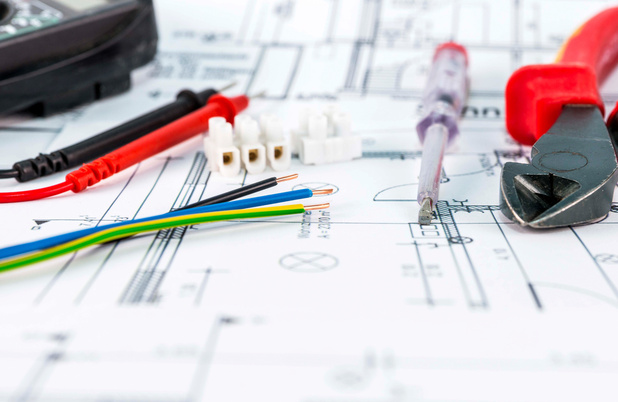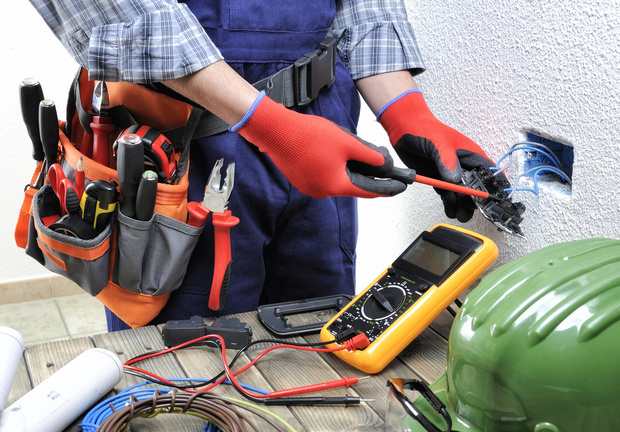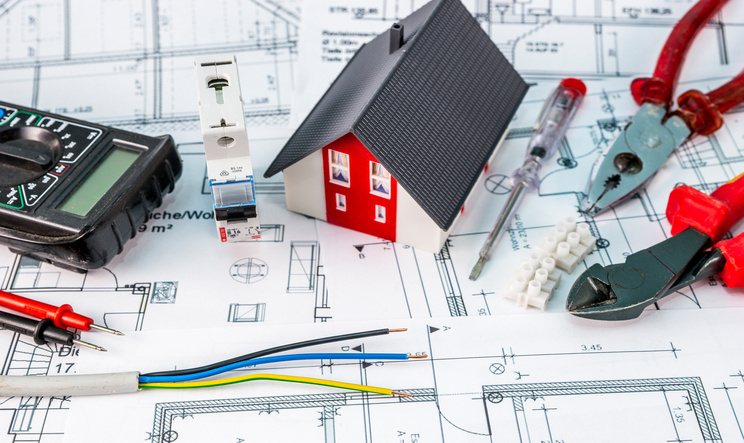An electrical inspection is a comprehensive checkup of your home’s electrical components, from the ground wire to the outlets and the wiring and fuse box. Having an electrical inspection of your home conducted has many benefits. Before getting to those, perhaps you are wondering when you should have an electrical inspection done. Here are a few guidelines:
Before Buying a House
You wouldn’t buy a house with faulty or dangerous electrical wiring, would you? The best way to ensure a home you are looking to purchase is free of a potentially dangerous electrical system is to have an inspection done before you purchase the house. All it takes to set up an inspection is a call to an experienced electrician.
After Major Renovations
Renovations to your home have the potential to change the configuration your home’s electrical components. For this reason, it is a good idea to have an electrical inspection done following the completion of such renovations. It’s also recommended if you are adding a new home appliance to the mix or replacing an existing one. An electrical inspection of your home following a renovation is especially beneficial if you are looking to sell your newly renovated home.

You Live in an Older House
Routine electrical inspections of older homes can help you make sure your home’s electrical system is still functioning properly. Older homes, such as ones built before 1940, may have obsolete lighting technology, such as knob-and-tube lighting. An electrical inspection will help you know whether or not that is the case and whether it is working as it should.
Now that you know when to do an electrical inspection of your home, let’s get to why they are so important.
Save Money
That’s right. Having an electrical inspection can actually lead to a smaller electric bill in your mailbox each month. During an electrical inspection of your house, an electrician can tell you if your current electrical system’s inefficiency is costing you money. This is particularly true of older houses, especially those that have knob-and-tube wiring. Not only does upgrading your electrical wiring cut your monthly electricity spending, it also helps reduce your carbon footprint.
Avoid Potential Hazards
The best way to check if your home’s electrical system is functioning properly is to have a professional check it out. Even if you are a skilled DIYer, it can’t hurt to have a professional electrician inspect the electrical components and reassure you no mistakes were made. An electrical inspection of your house helps prevent future mishaps due to issues with your electrical system, including malfunctions and fires. Fires are the primary threat faulty electrical components pose.

Housing/Electrical Codes
Another reason electrical inspections of your house are important is that they help ensure your home is not in violation of any local or federal electrical codes. Most local codes are based on the National Electrical Code (NEC) set forth by the National Fire Prevention Association (NFPA). As a handy rule of thumb, when local and national codes are in conflict, the local code takes precedent over the national code. Electricians in your area should be well-versed in the subject matter and know whether or not your home’s setup is currently violating the local or national code.
Safety
Above all, as you can likely deduce from the last couple points, the purpose of home electrical inspections is to maintain your safety. Having an electrician come inspect your electrical wiring helps reduce the incidence of hazards such as electrical fires. If you haven’t had one done in a while, a trained electrician in your area is only a phone call away.
As a trained electrician, you can help protect people by conducting electrical inspections as part of your job. Before you can do that, though, you need to learn the electrical trade inside and out. Thankfully, Coyne College’s electrical programs can help you out with that.
Electrify Your Career at Coyne College
Coyne College in Chicago offers two programs for aspiring electrical workers: electrical construction and planning and electrical construction and maintenance.
Coyne College’s programs are available during days and nights at its Chicago Loop campus, located at the intersection of State and Madison streets. We are committed to helping you find a balance between your everyday commitments and a stellar electrical education.
Our electrical construction and planning program can be completed in as few as 78 weeks, whereas the electrical construction and maintenance program can be finished in 42 to 56 weeks. It simply depends on whether you take day or night classes.
As a student in either of Coyne College’s electrical programs, you will gain a comprehensive knowledge of electrical work in classes such as:
- Electrical and Electronic Principles
- Electrical Test and Equipment Safety
- Electrical Construction – Residential
- Electrical Theory and Applications
You will learn the ins and outs of the electrician trade in a setting that focuses on your individual success. Coyne College’s highly knowledgeable instructors have years of real-world experience under their belts and are eager to help you make the most of your education.
In addition to flexibility and quality instruction, Coyne College’s career services department can help you with job placement, including apprenticeships. Coyne College has more than 110 years of experience in helping transform students with dreams into qualified, skilled trade professionals.
Discover all that Coyne College has to offer and begin your journey to a new career today by visiting https://www.coynecollege.edu/.


